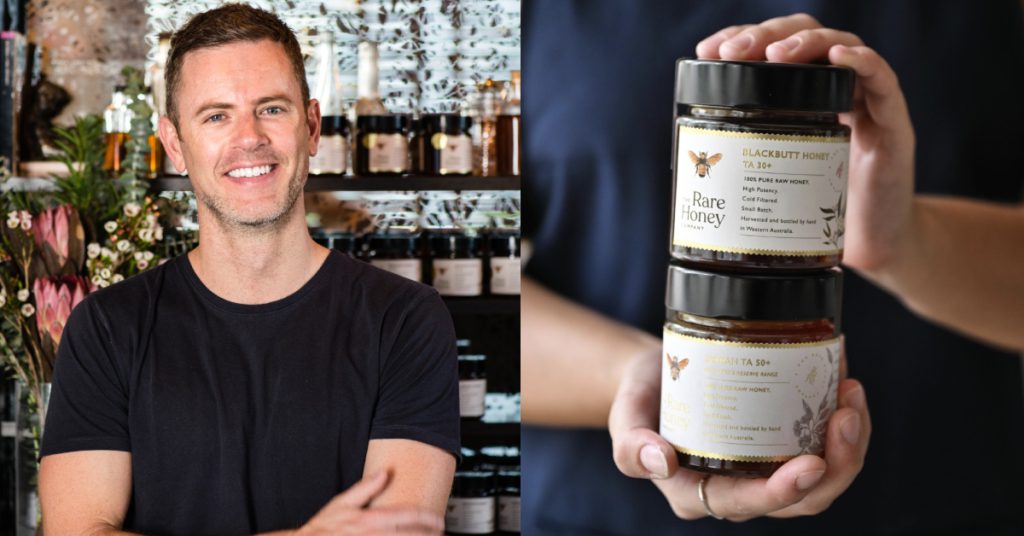Harry Grover has long been at the forefront of Singapore’s third wave coffee movement.
Back when Singapore’s coffee landscape was dominated by Starbucks and local coffee stalls, he launched speciality coffee joints Common Man Coffee Roasters (CMCR) and Forty Hands—both of which quickly grew into well-known brands in the city-state, though the latter has since closed its doors.
Beyond coffee, he’s also played a key role in establishing F&B concepts such as Open Door Policy and Tiong Bahru Bakery.
Now, the Australian entrepreneur has started a new venture—with The Rare Honey Company, he aims to put sustainably sourced, raw Australian honey on the global stage.
But why honey, and is there even a demand for it in Singapore?
A gap in the F&B scene
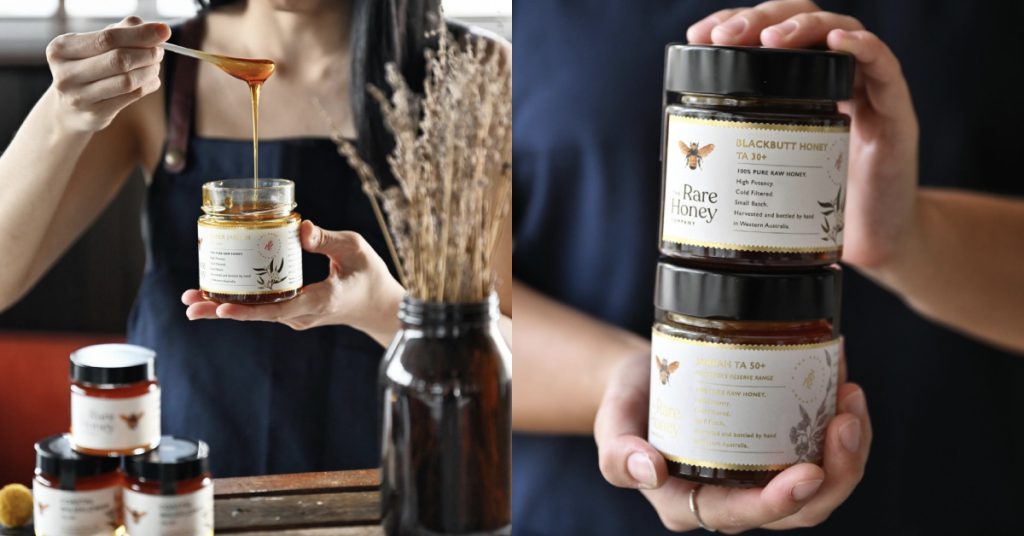
While running CMCR, Harry started The Rare Honey Company sometime in mid-2020 as a side project driven by his passion for specialty honey.
“I had a real interest in it, partly because of my background and childhood growing up in the Southwest forests of Western Australia,” he shared. The region is known to be one of the best locations for bee keeping, thanks to its “unspoiled wilderness and unique species of eucalyptus trees” that can produce exceptional honeys.
He also noticed a gap in Singapore’s F&B scene at that time—though people were becoming more discerning with food products and concerned with quality, authenticity, and traceability, he realised that there “wasn’t much information and education” on specialty honeys in Singapore.
There just seemed to be two ends of the spectrum in Singapore’s market: cheap, and probably fake honeys in supermarkets, and very, very expensive manuka honeys that seemed to be trading off big marketing budgets but still with pretty limited information on their origin. Pricing seemed arbitrarily high.
Harry Grover, co-founder of The Rare Honey Company
A hive to jar business
The Rare Honey Company sources its honeys directly from its own hives located in the Southwest and Great Southern regions of Western Australia.
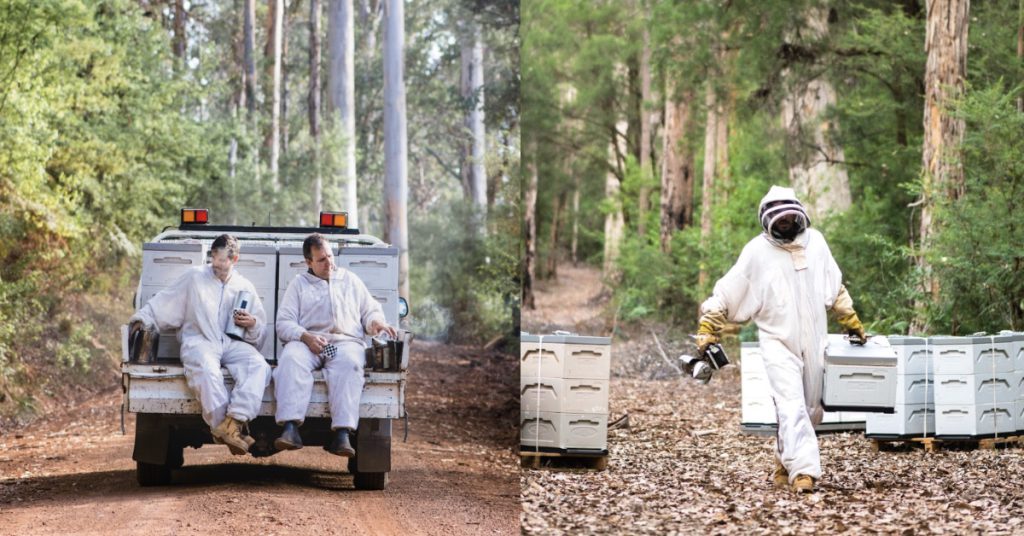
Harry runs the business alongside two other co-founders and experienced beekepers, Stephen Tomsic and Ryan Brand, who are both based in the country.
From managing hives to harvesting and packaging, the company oversees every step of the production journey, ensuring full control over quality and traceability.
We are a farm to table—hive to jar—business. We not only bottle and retail the honey, but we are also the apiarists.
By owning and managing the primary production, we are able to focus on producing some of the highest quality Australian honeys, all sourced from unique wildflower species endemic only to this small pocket of the world . Hence the name ‘rare.’
Harry Grover, co-founder of The Rare Honey Company
According to Harry, this approach different from the “standard business model,” where beekeepers typically sell their honey to a large company that blend it with other batches—often including honey of questionable origin.
It wasn’t all smooth sailing
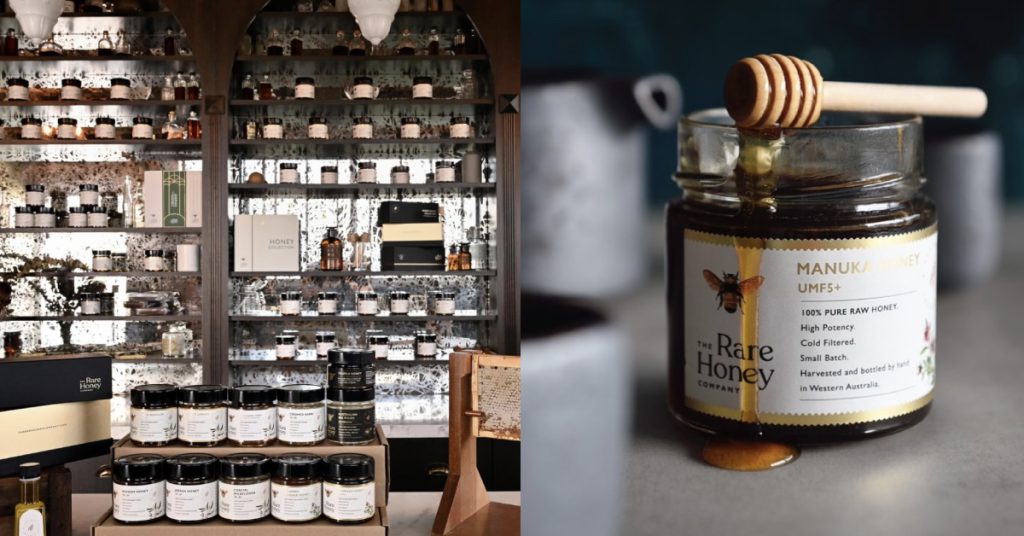
Initially, Harry started the business as an online brand, however, after realising that customers were “curious and eager” to try out the honeys and learn more about them, he set up a “tasting bar” a few months later at the Tan Boon Liat Building.
“With the tasting bar, if we could interest a customer to try, then 95% of the time they would buy—seeing (or tasting) is believing!”
Four years later, the business relocated its retail space to a “more accessible” location in Joo Chiat as demand picked up.
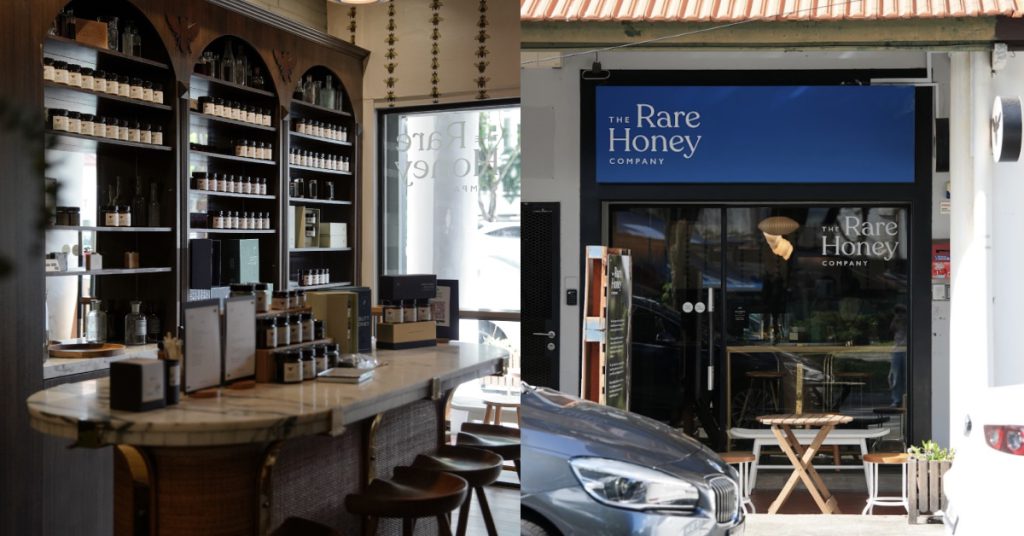
But it wasn’t all smooth sailing for the business.
One key challenge it has faced—and continues to face—is the high cost of shipping. Transporting honey is expensive due to the bulk and weight of the glass jars.
While it could opt for plastic tubs to reduce costs, the company believes that its packaging should reflect the “quality and rarity” of its products.
When The Rare Honey Company first launched, it air-freighted all of its products from Australia to the city-state, however, this quickly became “prohibitively expensive.”
Now, the company only air freights temperature-sensitive varieties, like its creamed honey, which does not fare well in sustained periods of high temperatures.
The rest of its products are shipped via sea, which requires the company to carry a larger inventory in Singapore due to the slower shipping times. This, in turn, leads to higher storage costs locally.
Expanding its reach
Despite these challenges, Harry shared that the business has experienced “steady annual sales growth” and is aiming to hit half a million dollars in sales this year.
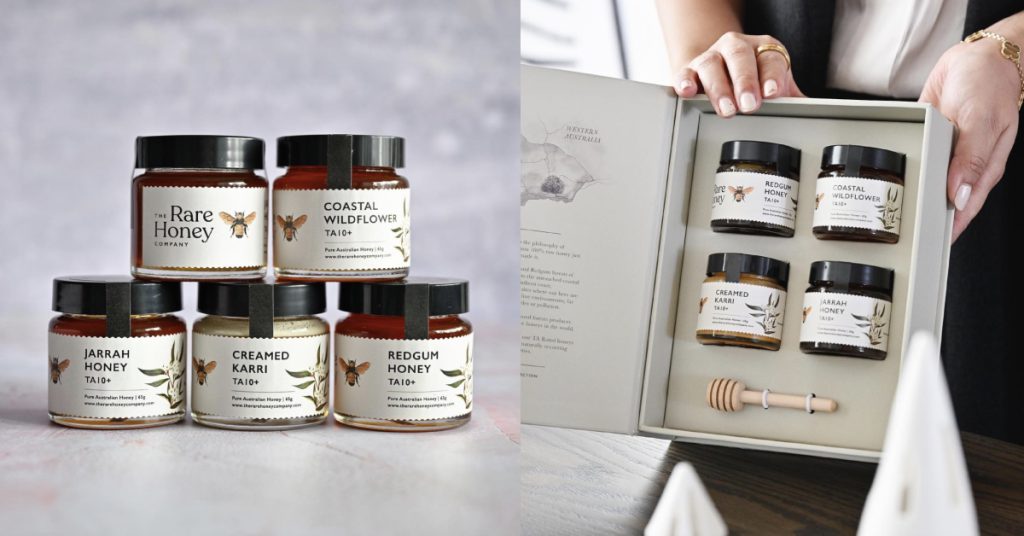
However, he also acknowledged that the market for specialty honey in Singapore remains relatively niche, and most value high-quality honeys for medicinal purposes, as opposed to just an everyday breakfast spread or as an addition to cooking or baking.
One way he hopes to increase The Rare Honey Company’s market reach is through product education and advocacy.
As such, the company focuses on providing ample information on its website and in-store education, aiming to build a deeper understanding and appreciation of specialty honey within the local community.
Moving forward, Harry plans to further refine the physical store concept for The Rare Honey Company and expand the brick-and-mortar side of the business.
Expanding beyond Singapore’s borders is also very much on his radar—in fact, he has recently soft-launched the business in the UK and is “excited” to get started in the country’s “mature market.”
- Find out more about The Rare Honey Company here.
- Read other articles we’ve written about Singapore businesses here.
Featured Image Credit: The Rare Honey Company


